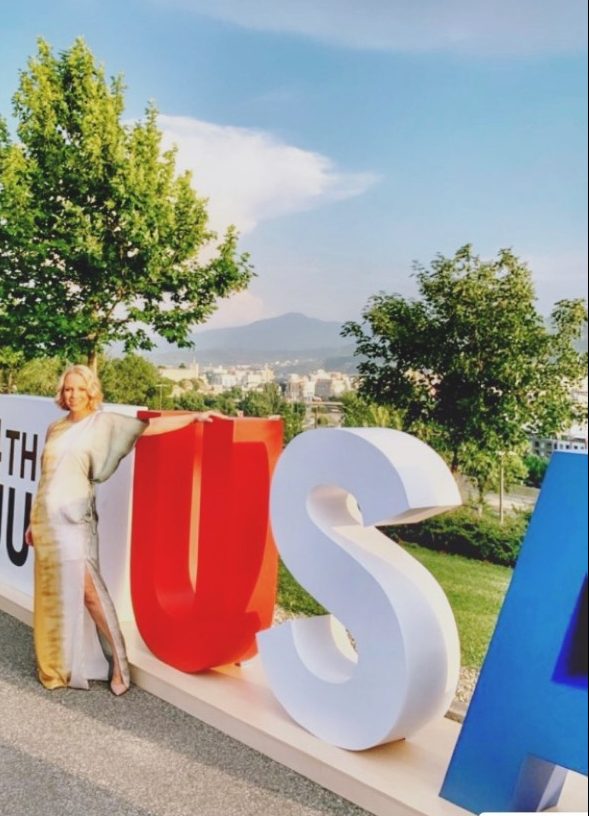During the celebration of the American Independence Day in the US Embassy in Macedonia, singer Tamara Todevska performed the Macedonian national anthem, but left out the verse which mentions the VMRO leaders of the struggle for independence.
“Anew now the flag of the Krusevo Republic waves. Goce Delcev, Pitu Guli, Dame Gruev, Sandanski”, is the verse which Tamara left out of her performance.
The event coincides with the bitter dispute with Bulgaria over the nationality of Goce Delcev and other VMRO leaders from the period of national revival. Tamara was quick to apologize this morning.
Allow me, from the bottom of my heart, to apologize for the mistake I made yesterday. There is no greater honor for an artist than to perform the national anthem, and this is why I accepted the US Embassy invitation. There are no words to describe my sorrow for the omission I made during the performance. Driven by the emotions and the euphoria, unfortunately, inadvertently, I left out a part of the anthem. Again I apologize for the mistake and I hope you will find room in your hearts to forgive me, Tamara Todevska wrote on her Facebook page.
Social media were buzzing after the event in the hilltop compound which, given the large role played by the Embassy, included the who’s who of Macedonian political, business and cultural life. The same evening, the United Macedonian Diaspora called on Tamara to apologize for the rendition of the anthem.
We demand an urgent apology from the Embassy of the United States in Skopje, Macedonia, for this unacceptable omission in the Macedonian national anthem performed by Tamara Todevska. Todevska’s version omitted an important portion of the anthem which mentions the fighters for Macedonian independence, Goce Delcev, Pitu Guli, Dame Gruev and Jane Sandanski. UMD firmly believes that this was not an omission, but a deliberate move, given the calls to alter the Macedonian anthem contained in the Tirana Platform and the insistence from Bulgaria that these historic figures are labeled as Bulgarians. Without a formal apology by the Embassy, the United States will be seen as taking a side in the senseless historical debate which was initiated by Bulgaria, UMD said.
“The anthem was castrated” and “this is an anthem of the citizens”, were some of the comments seen online, referring to the division that has developed as some Macedonians on the left call for having adapted national symbols of “the citizens” and not of the Macedonian nation.
Tamara already caused divisions with her performance of women’s pride anthem at the Eurovision song contest, when she insisted on using the name “North Macedonia”. Previous Macedonian Eurovision performers would regularly use Macedonia and push back against the use of the abbreviation “former Yugoslav..”, but Tamara endorsed the imposed name. Her Eurovision campaign was seen as, to a large extent, a push to internationally promote the name “North Macedonia”, which earned her the scorn of many Macedonians angry at the name change.





Comments are closed for this post.